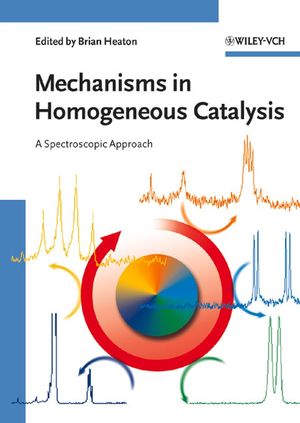Mechanisms in Homogeneous Catalysis: A Spectroscopic ApproachISBN: 978-3-527-31025-8
Hardcover
404 pages
May 2005
 This is a Print-on-Demand title. It will be printed specifically to fill your order. Please allow an additional 10-15 days delivery time. The book is not returnable.
|
||||||
While chemists using spectroscopic methods need to learn from the specialists, they do not normally read the spectroscopists' original papers. This book provides this very information -- summarizing some recent advances in the mechanistic understanding of metallocene polymerization catalysts and the role of NMR spectroscopy in these endeavors.
Adopting a real practice-oriented approach, the authors focus on two of the most important spectroscopic techniques with two parts devoted to each of NMR and IR spectroscopy - as well as on important industrial applications with regard to the reaction discussed. Rather than providing a complete and exhaustive review of homogeneous hydrogenation and its detailed mechanisms, the book focuses on the specific spectroscopic techniques and the mechanistic information that has been obtained from their application. The result is unique in its scope, allowing chemists from different fields to learn which techniques can be applied for their specific synthetic problems.
The prizewinning editor, Professor Brian Heaton, is the key player in the field, and has brought together here a team of authors to cater for specialists, and researchers in industry and academia.
Adopting a real practice-oriented approach, the authors focus on two of the most important spectroscopic techniques with two parts devoted to each of NMR and IR spectroscopy - as well as on important industrial applications with regard to the reaction discussed. Rather than providing a complete and exhaustive review of homogeneous hydrogenation and its detailed mechanisms, the book focuses on the specific spectroscopic techniques and the mechanistic information that has been obtained from their application. The result is unique in its scope, allowing chemists from different fields to learn which techniques can be applied for their specific synthetic problems.
The prizewinning editor, Professor Brian Heaton, is the key player in the field, and has brought together here a team of authors to cater for specialists, and researchers in industry and academia.



